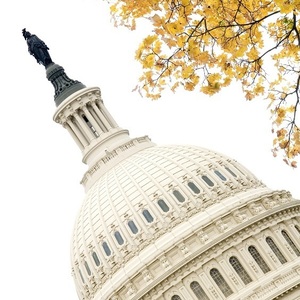ACE members urge passage of biofuel bills during fly-in

April 6, 2023
BY Erin Krueger
The American Coalition for Ethanol hosted its annual Washington, D.C., fly-in March 29-30. During the event, 60 ACE members held approximately 100 meetings with federal lawmakers to advocate for legislation that supports the U.S. ethanol industry.
Brian Jennings, CEO of ACE, said the 2023 fly-in is the first held by the group since 2019. He said 60 ACE members representing 11 states attended the event. About half those individuals represented ethanol producers, while the other half represented corn farmers, fuel retailers or fuel marketers.
The fly-in focused on three primary issues, according to Jennings. The most urgent issue addressed was the need for year-round E15—both via an emergency waiver for the upcoming summer driving season and a permanent solution via the Consumer and Fuel Retailer Choice Act, which was introduced in both the U.S. Senate and the U.S. House of Representatives in March.
Advertisement
Jennings said several members of Congress representing the corn belt already understand the price benefits and cost savings that E15 provides. For lawmakers who were unfamiliar with E15’s ability to save money at the pump, ACE members were able to share facts and figures about the benefit of higher ethanol blends. Congress was very receptive to that information, Jennings said.
Second, ACE members focused on the Next Generation Fuels Act. That bill includes various provisions that would support the use of ethanol, including the creation of a high-octane, low-carbon fuel standard and a requirement for automakers to design and warrant their vehicles for higher ethanol blends, such as E20 and E30.
Advertisement
Finally, those attending the fly-in also more broadly addressed the issue of clean fuels policy, Jennings said. ACE members specifically focused on the need for any federal clean fuels policy to be technology neutral and account for climate-smart agriculture.
During the fly-in, ACE members also had the opportunity to engage with representatives of the U.S. EPA and USDA. Representatives of these agencies discussed opportunities to lower the carbon intensity of biofuels, discussed work on the upcoming Renewable Fuel Standard “set” rulemaking, and addressed their engagement with the U.S. Treasury Department to implement new biofuel tax credits established by the Inflation Reduction Act.
Related Stories
The U.S. Energy Information Administration maintained its forecast for 2025 and 2026 biodiesel, renewable diesel and sustainable aviation fuel (SAF) production in its latest Short-Term Energy Outlook, released July 8.
XCF Global Inc. on July 10 shared its strategic plan to invest close to $1 billion in developing a network of SAF production facilities, expanding its U.S. footprint, and advancing its international growth strategy.
U.S. fuel ethanol capacity fell slightly in April, while biodiesel and renewable diesel capacity held steady, according to data released by the U.S. EIA on June 30. Feedstock consumption was down when compared to the previous month.
XCF Global Inc. on July 8 provided a production update on its flagship New Rise Reno facility, underscoring that the plant has successfully produced SAF, renewable diesel, and renewable naphtha during its initial ramp-up.
The U.S. EPA on July 8 hosted virtual public hearing to gather input on the agency’s recently released proposed rule to set 2026 and 2027 RFS RVOs. Members of the biofuel industry were among those to offer testimony during the event.
Upcoming Events










